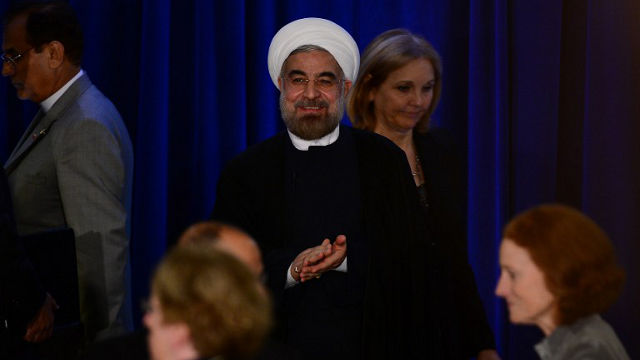SUMMARY
This is AI generated summarization, which may have errors. For context, always refer to the full article.

TEHRAN, Iran – Iranian Telecommunications Minister Mahmoud Vaezi rejected on Monday any official plans to legalize Facebook and Twitter, although President Hassan Rouhani pledged to reduce online censorship, ISNA news agency reported.
“The ban on networks such as Facebook and Twitter was not supposed to be lifted,” said Vaezi.
Tehran blocks access to Twitter, Facebook, YouTube and numerous other sites, including blogs and pornography hubs, as it tries to stop Iranians from surfing content authorities seen as undermining the Islamic regime, or as being immoral.
The authorities provide some private or sate-owned companies a “national VPN” which allow them to access to the global Internet.
Despite being banned, Facebook and Twitter accounts are affiliated to some Iranian officials.
When asked about these officials, Vaezi simply replied: “You should ask them”.
Iran’s supreme leader Ayatollah Ali Khamenei is believed to have a Facebook page.
There is also a Twitter account in the name of Rouhani, although one of his advisers have said it was not a personal account.
Foreign Minister Mohammad Javad Zarif has accounts on both Facebook and Twitter.
He regularly updates his Facebook page, where he posts in Farsi and sometimes interacts with some of his more than 400,000 fans, and he posts in English on Twitter.
In early October, Twitter co-founder Jack Dorsey asked Rouhani: “Are citizens of Iran able to read your tweets?”
Rouhani’s account answered that the president would do his best to ensure that the people of Iran will “comfortably” be able to “access all info globally as is their right”.
In an interview with CNN aired on September 25, Rouhani said he planned to reduce restrictions so that “within (certain) sort of moral frameworks that we have for ourselves… we are able to access these social network sites”.
On September 17, the two networks became briefly accessible, but later Iranian officials explained this had been due to “technical glitch”.
According to official figures, of the total population of 75 million in Iran, more than 30 million people use Internet. – Rappler.com
Add a comment
How does this make you feel?
There are no comments yet. Add your comment to start the conversation.